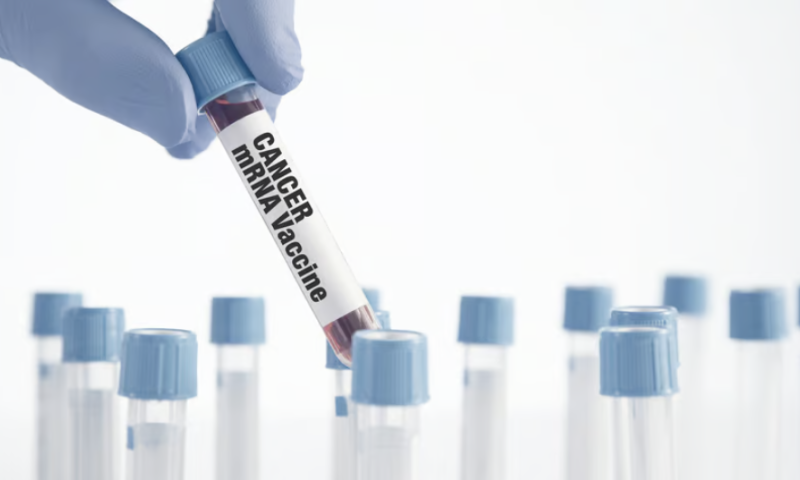Moderna’s buzzy cancer vaccine partnership with Merck will soon take a leap into lung cancer, after recent clinical data showed the shot—alongside Merck’s blockbuster Keytruda—significantly reduced risk of recurrence or death in patients with melanoma.
The famed biotech has “bold ambitions” for the individualized neoantigen therapy (INT), dubbed mRNA-4157, Kyle Holen, M.D., Moderna’s head of development of therapeutics and oncology, told Fierce Biotech in an interview. The vaccine is currently being studied in combination with Keytruda in a phase 3 trial of patients with high-risk melanoma.
The next step will be a new, early-stage trial to assess mRNA-4157 in combo with Keytruda in lung cancer, Holen said. The pharma hopes to test out the vaccine in other tumor types as well, according to Holen, though plans beyond lung cancer haven’t been finalized yet.
For now, Moderna is trying to “piggyback” on the success of Keytruda, citing Merck’s phase 3 KEYNOTE-671 data shared at this year’s American Society of Clinical Oncology meeting. The study tested Keytruda before and after surgery as a potential new standard of care for patients with early-stage non-small cell lung cancer (NSCLC). Using Keytruda around surgery reduced the risk of disease recurrence, progression or death by 42% in patients with resectable stage 2 to 3b NSCLC.
“We anticipate that this will be a really major addition to treatment standards for patients with early-stage lung cancer,” Eliav Barr, M.D., chief medical officer at Merck Research Laboratories, told Fierce Pharma at the time.
Based on the phase 3 data, Merck has asked the FDA to approve Keytruda as a perioperative treatment in early lung cancer with a decision expected by Oct. 16.
Now, Moderna’s Holen says the two companies want to see if mRNA-4157 can provide an even greater benefit on top of standard-of-care treatment and Keytruda.
Previously, the personalized cancer vaccine in tandem with Keytruda missed the mark for colorectal cancer in a small phase 1 study, but had some luck shrinking tumors for patients with head and neck cancer in the same trial.
In melanoma, Merck and Moderna found in a phase 2b trial that mRNA-4157 in combination with Keytruda reduced the risk of recurrence or death by 44% compared with Keytruda alone for the post-surgery treatment of resectable disease.
That led to a late-stage test of the customizable vaccine, which just launched this month. The companies plan to enroll more than 1,000 patients across more than 100 global sites. The study is expected to wrap in 2029, with interim analyses plans yet to be announced.
The cancer vax collaboration is a 50/50 split between Moderna and Merck, according to Holen—except when it comes to manufacturing.
“We’re responsible for all the manufacturing for INT,” Holen explained. “For this study in particular, Merck is operationalizing the study and is acting as a sponsor. For future studies, it may be Merck that’s operationalizing, or it may be Moderna—it’s based on what we think is best for INT.”
Holen just joined Moderna last fall after spending more than a decade at AbbVie and now oversees the therapeutics unit, which expands beyond cancer into rare disease and cardiovascular indications. The biotech’s other unit focuses on infectious disease vaccines—such as the COVID-19 shot Spikevax.
“Oncology gets a lot of press,” Holen said laughing. “But honestly, I’m equally excited about our rare disease programs. I really believe that some of the best ways to utilize mRNA and have an impact on patients is through replacing some critical enzymes that patients cannot produce because of underlying mutations.”
One program that does this is a Vertex Pharmaceuticals-partnered cystic fibrosis therapy called VX-522. The mRNA therapy has nabbed FDA fast track status and aims to tackle the underlying cause of CF by programming cells in the lungs to produce functional cystic fibrosis transmembrane conductance regulator. The companies launched a phase 1 trial for VX-522 in February of this year, with an estimated enrollment of nine patients and a primary completion date set for January 2024.

